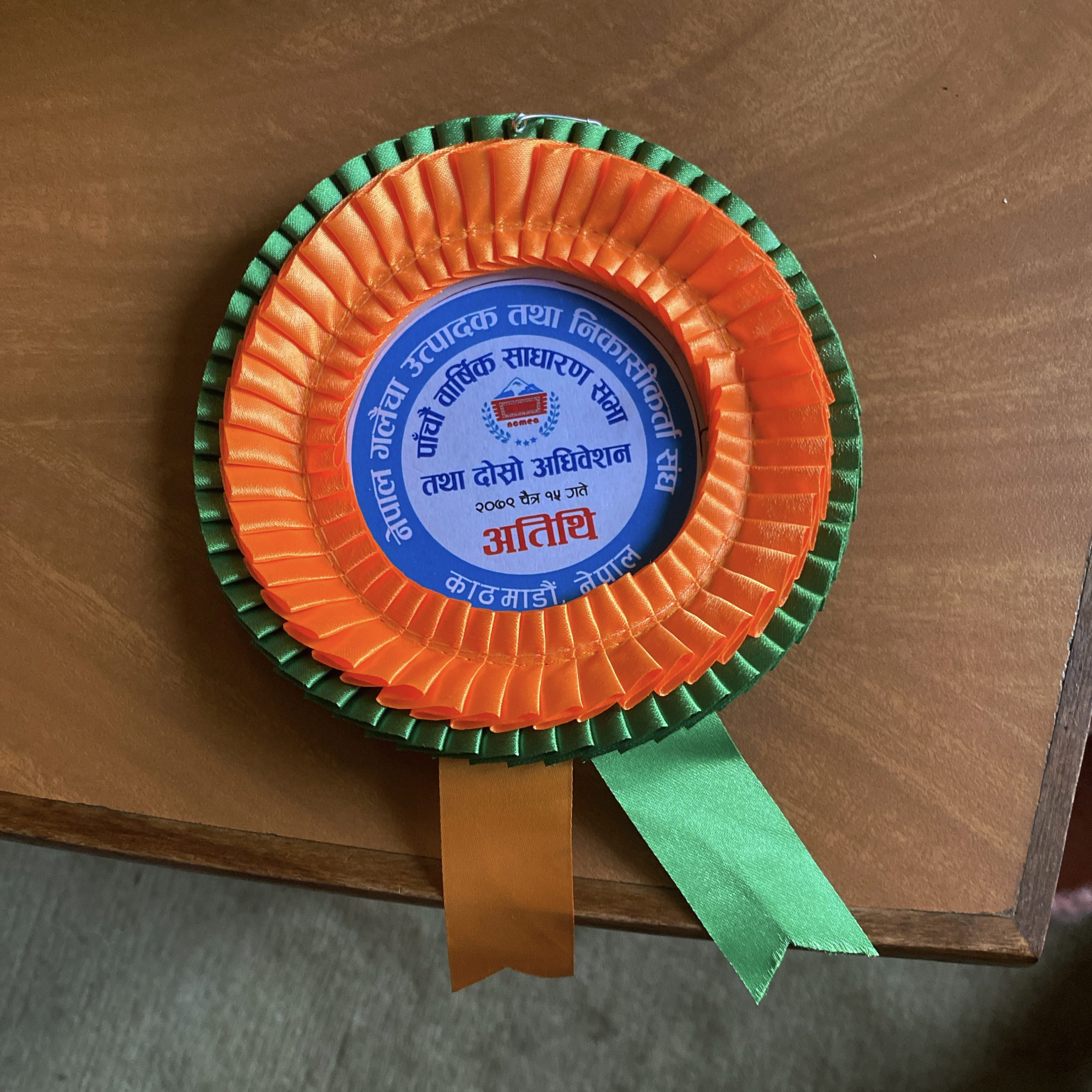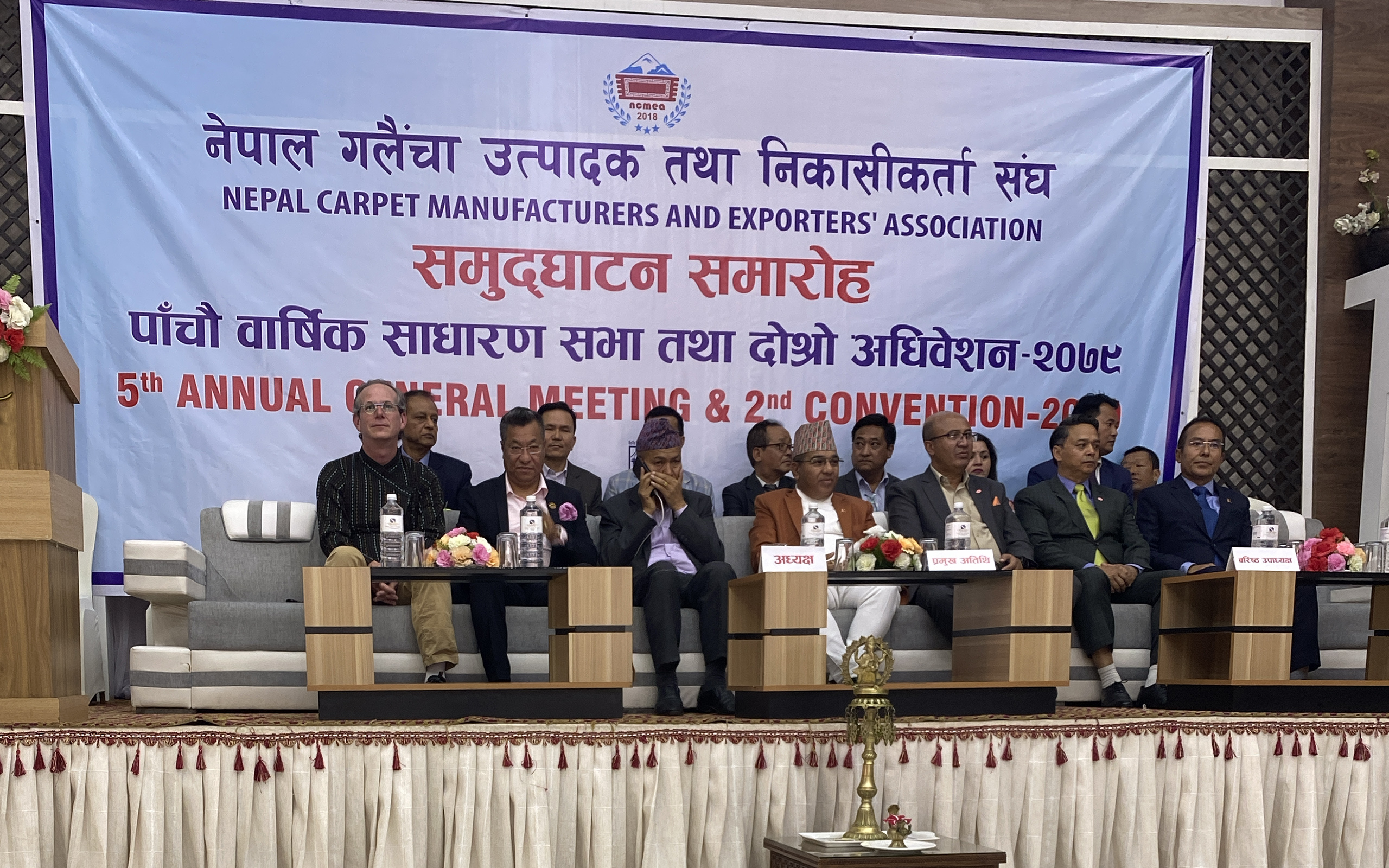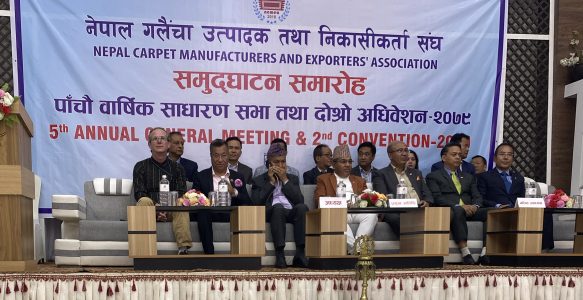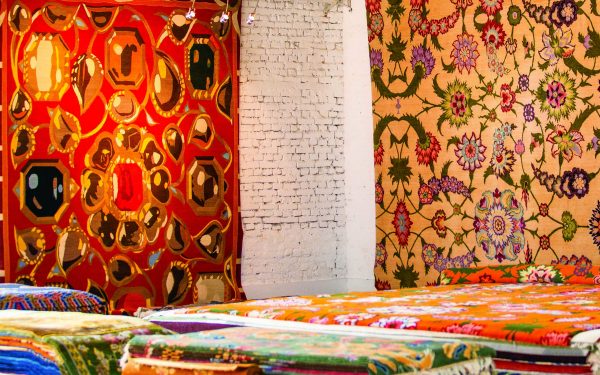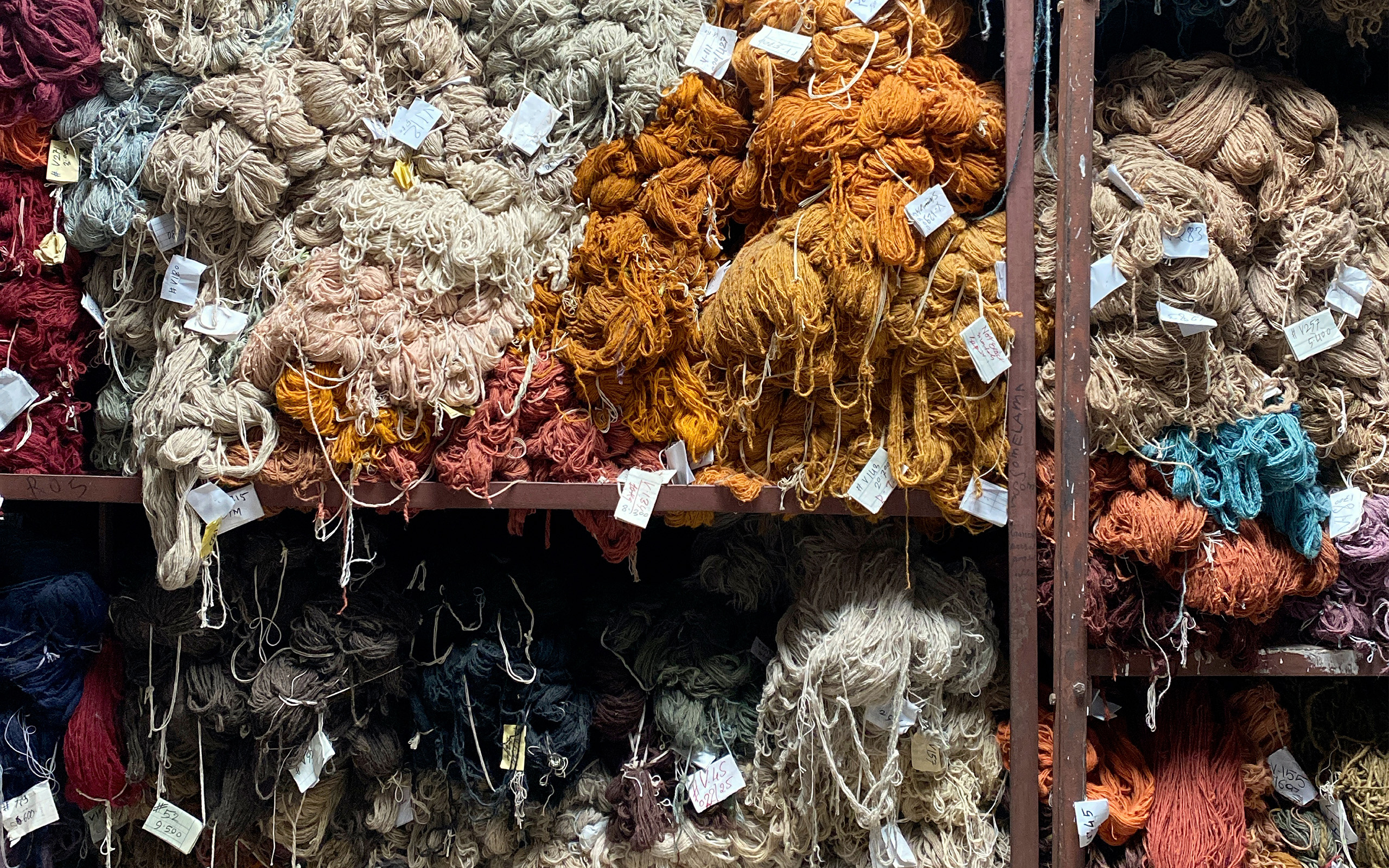These extemporaneous remarks were originally delivered to honoured guests, attendees, and the Executive Committee of the Nepal Carpet Manufacturers and Exporters’ Association (NCMEA) during the organization’s annual meeting in Kathmandu, Nepal on Wednesday, 29 March 2023. They have been automatically transcribed by artificial intelligence and lightly edited for syntax and clarity.
Opening Joke
I’d like to welcome you to the English language portion of the program. [Limited laughter…]
Introduction
Hello. My name is Michael Christie, thought perhaps many of you know me by my nom de plume, The Ruggist. Since 2018 I’ve been the Brand Ambassador of Nepali carpets. It’s been my honour to represent Nepal in the international market to try and promote the carpets made here.
My career started selling rugs many years ago, and when I was first introduced to carpets made here in Nepal, it’s what made me stay in the industry. The aesthetics, the quality, the craftsmanship that came out of Nepal. It’s what’s provided my career in the West, and it’s why I’m very happy to be here today and to be working to help promote the Nepali carpet industry.
I’d like to thank my friends here, some of my friends here on stage, many of you I know in the audience for inviting me here today. But my work is kind of… …it’s all talk. The work of all of you, the work of the weavers here. That’s what really makes amazing carpets.
But my work is kind of… …it’s all talk. The work of all of you, the work of the weavers here. That’s what really makes amazing carpets.
Michael Christie, The Ruggist, Brand Ambassador of Handmade Nepali Carpets
The Future
And I have a vision for the future of Nepali carpets. And it’s different from what the Nepal carpet industry has been in the past. This is just my opinion. This is based on what I see in the market. It’s what I think the world needs, and I think it’s really what the people of Nepal need.
I would like to see more Nepali companies represented in the West.
We see carpets shown at DOMOTEX – as the major trade show. Of course, many, many, many of the most beautiful ones there are made here in Nepal. But we don’t know who any of you are. We know the Western brands, but there’s so much beautiful artwork here.
So much creativity, so much ability to solve problems that I think the way the market has changed, the way the world has globalized, the way Kathmandu has changed in just the seven years I’ve been coming here, I think it’s time that the industry here can mature beyond just being manufacturers.
You’re wonderful manufacturers. You can make beautiful carpets. But I think back to some of the early carpets that I first saw that made me love the industry. They were based on traditional Tibetan motifs that the West had just adapted and changed to make interesting to Westerners. I think that’s possible, again. I think as second and third generation carpet makers, perhaps some who have been educated in the West, [as] they return here to Nepal, they can bring the knowledge. They know of what Western consumers want, what the aesthetics that appeal to Western consumers look like, they can bring that knowledge here.
Opportunity
And I think there’s opportunity for exporters, manufacturers – people who aspire to be either one of those – to start creating carpets and establishing Nepali brands that are known in the international market. Yes, this is probably going to upset a lot of my friends in the West, but times change. Nothing is permanent, as our Buddhist friends know. And I’d like us to examine what the conditions were in the past that made the industry successful, [and] realize that those conditions have changed – labour is far more expensive here than it once was.
But we can look at what the conditions of today are and we can change ourselves, change the way we do business. And that’s one of the reasons I’ve been I’ve been here since the end of February working on a project, trying to: 1) Better understand manufacturing, but also 2) To try and help companies adapt so that they can engage more directly with Western consumers.
I’m not saying it’s going to be easy. I’m not saying there aren’t challenges that need to be overcome. But I think that as business people, as most of us are, we have opportunities to take these conditions and make our own way. I think it involves partnering with international organizations. [For example] I’ve been working with LabelSTEP on the Artisans’ Village Project, which is taking place down in Sarlahi.
Is it a solution? It’s a solution, it’s not the solution. But it’s an idea to just reëxamine the way carpets are made and potentially how they’re distributed.
Likewise with the government, the role of government. I view government’s role as to assist the industry internationally. To make it easier for all of you to do business internationally. I don’t want us to think that the industry needs unlimited support from international aid agencies or government. We’re capable people. We can do this on our own.
Conclusion
And so just to keep this brief, because I’m not very good at that…
I would like to just kind of conclude by encouraging all of you to look at the market to see if you have the creativity with[in] you and your team; to maybe work collaboratively with your friends.
So many of us know one another from various various organizations and the times we’ve had dinner, that we can work together to promote Nepal internationally in a much more positive and a much more forward way that establishes all of you as the names people know in the West – as opposed to just Western brands.
So I would like to thank you for your time. Thank you once again for inviting me. And I will close by saying धन्यवाद – ‘Dhan’yavāda – because it’s one of the few words I know.
Thank you so much.
